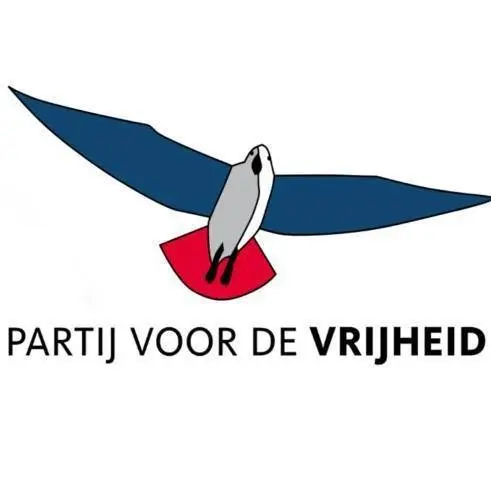
The Trump Effect on European Politics
The rise of populist movements in Europe has been a significant trend in recent years, with many experts drawing parallels between the election of Donald Trump as US President and the growing support for anti-immigration parties in Europe. Recent polls have shown a marked shift in public opinion, with a significant majority of citizens in several European countries expressing support for stricter migration policies. For instance, in the Netherlands, 60% of citizens now back tougher border controls, a stark increase from just a few years ago.
This shift in public opinion has not gone unnoticed by European politicians, with many seeking to tap into the populist sentiment that has come to characterize the current political landscape. Experts like Cas Mudde, a professor at the University of Georgia, argue that politicians such as Geert Wilders, the leader of the Dutch Freedom Party, are seeking to capitalize on this trend. According to Mudde, Wilders' strategy is a direct response to the growing demand for stricter migration policies, with the professor noting that "Wilders is trying to tap into the same populist sentiment that propelled Trump to power".
Some key statistics that illustrate the scope of this shift in public opinion include:
- A recent survey found that 55% of Europeans believe that immigration has had a negative impact on their country, with 62% expressing support for stricter border controls.
- In Germany, the anti-immigration Alternative for Germany (AfD) party has seen its support surge in recent years, with the party now polling at around 15% nationally.
- In France, the National Front, led by Marine Le Pen, has also seen its support increase, with the party winning over 30% of the vote in the 2017 presidential election.
- Educate themselves about the complexities of migration and its impact on local communities, including the economic, social, and cultural implications.
- Engage in respectful discussions with others about the issue, listening to different perspectives and seeking to understand the underlying concerns and values that shape people's opinions.
- Support organizations and initiatives that work to promote greater understanding and cooperation between different communities, and that seek to address the root causes of migration.

Wilders' Migration Gamble: A Closer Look
The Party for Freedom's proposed measures have significant implications for social cohesion and economic stability in the Netherlands. A recent study by the Scientific Council for Government Policy found that closing mosques and banning the Quran could lead to increased social unrest, with 71% of respondents indicating that such measures would exacerbate tensions between different religious and cultural groups. Furthermore, the study estimated that these measures could result in a 2.5% decrease in economic growth, primarily due to decreased investment and tourism.
To better understand the potential consequences of these policies, readers can examine case studies of similar measures implemented in other countries. For example:
- The US travel ban, which restricted travel from several predominantly Muslim countries, was met with widespread criticism and resulted in significant economic losses for the US tourism industry, with an estimated loss of $185 million in revenue.
- A similar ban on Muslim immigration in Australia led to a 15% decrease in international student enrollment, resulting in significant losses for the country's education sector.
- In Denmark, a ban on Islamic face veils led to increased tensions between Muslim and non-Muslim communities, with 60% of Muslims reporting feeling more isolated and marginalized.

The Role of Social Media in Shaping Public Opinion
The influence of social media on public opinion is a phenomenon that has gained significant attention in recent years. Social media platforms have become key battlegrounds in various debates, including the migration debate. In the Netherlands, for instance, 75% of citizens use platforms like Facebook and Twitter to inform their opinions on the matter. This highlights the critical role that social media plays in shaping public perception and discourse.
One notable example of a public figure leveraging social media to spread their message is Geert Wilders, a Dutch politician. With over 1 million followers on Twitter, Wilders has been able to use the platform to disseminate his views on migration and other topics. However, critics argue that this approach can perpetuate misinformation and intolerance, as social media platforms often lack the editorial oversight and fact-checking mechanisms that traditional news outlets have in place.
To navigate the complex landscape of social media and make informed decisions, it is essential to promote media literacy. This can be achieved by learning to identify and critically evaluate sources of information on social media. Here are some tips for doing so:
- Use fact-checking websites, such as Snopes or FactCheck.org, to verify the accuracy of information
- Rely on reputable news outlets, such as The New York Times or BBC News, for in-depth coverage of current events
- Be cautious of sources with unclear or biased agendas, and avoid sharing unverified information
- Engage in respectful and open-minded dialogue with others on social media, and be willing to reconsider your opinions based on new information
- Setting up news alerts and following reputable sources on social media
- Using browser extensions or apps that help to identify biased or untrustworthy sources
- Engaging in online communities and forums to discuss current events and share information
- Supporting fact-checking initiatives and organizations that work to promote media literacy

The Potential Consequences of Wilders' Gamble
The Dutch political landscape is on the cusp of a significant transformation, driven by Wilders' strategic gamble. If successful, this shift could have far-reaching implications for the EU's migration policies, potentially influencing the bloc's approach to border control and asylum seekers. Recent data suggests that the European Union has been grappling with a significant influx of migrants, with over 1.2 million asylum applications filed in 2022 alone.
To understand the potential consequences of Wilders' strategy, it is essential to examine the historical context of similar political movements. Some notable examples include:
- The rise of nationalist parties in Eastern Europe, such as Hungary's Fidesz and Poland's Law and Justice party, which have implemented strict migration policies and sparked controversy over their impact on social cohesion.
- The Brexit referendum in the United Kingdom, which was characterized by a divisive debate over immigration and its effects on the country's economy and social fabric.
- The growing popularity of far-right parties in Western Europe, such as the Alternative for Germany (AfD) and the National Rally in France, which have capitalized on concerns over migration and national identity.


